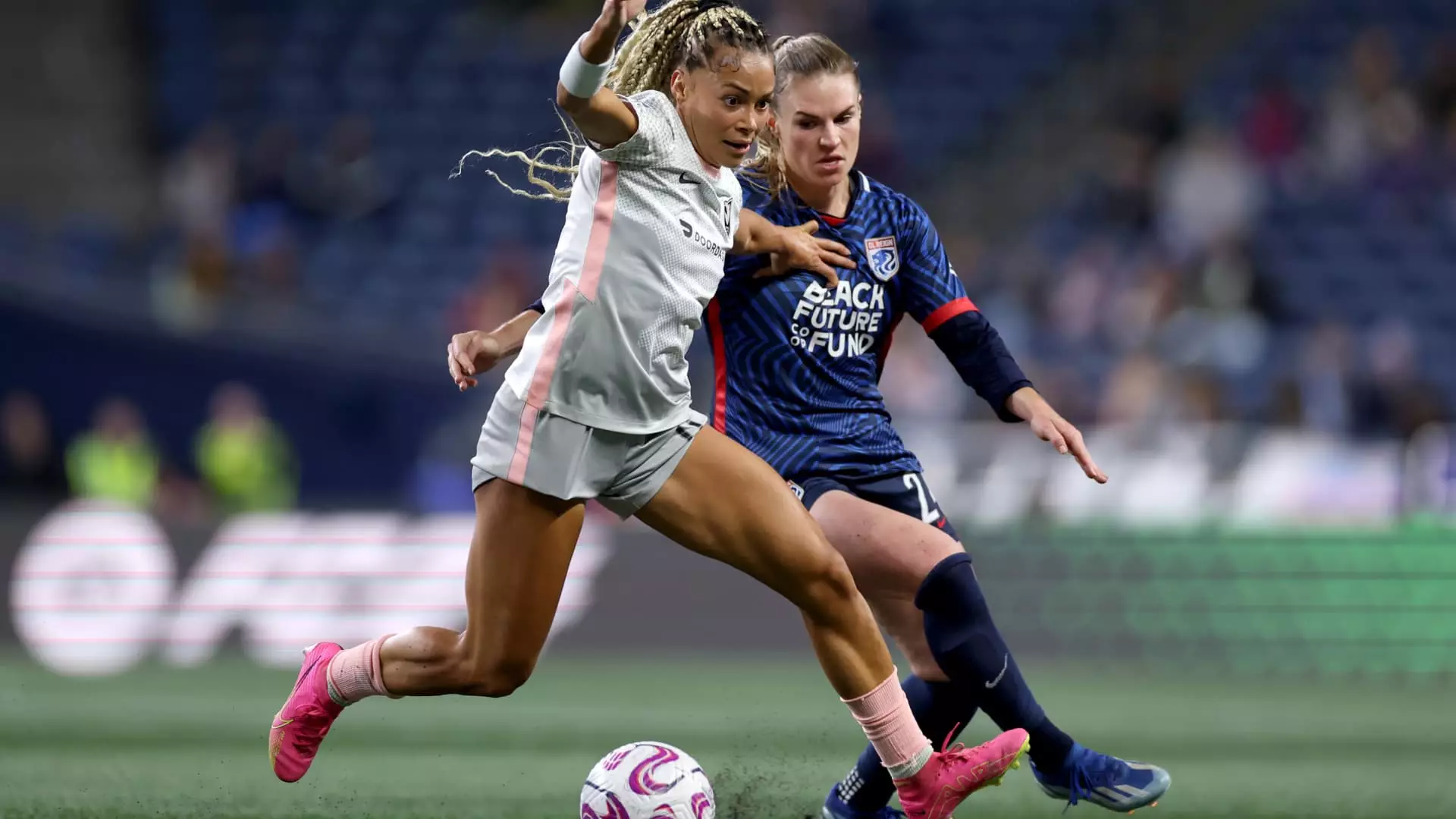Women’s soccer is experiencing a significant shift in the realm of private equity investments. While traditional U.S. sports leagues have allowed private equity investors to hold passive, minority stakes, the National Women’s Soccer League (NWSL) stands out by permitting these firms to take majority control of the economics. This unconventional approach is reshaping the landscape of women’s sports.
Changing Ownership Dynamics
In a groundbreaking move, investment firms like Sixth Street and Carlyle have entered the sphere of women’s soccer ownership. Sixth Street set a record by acquiring the San Francisco women’s team, Bay FC, for $54 million, demonstrating a strong commitment to the growth and development of the sport. Carlyle followed suit by purchasing the Reign FC in Seattle for $58 million, a remarkable increase from its $3.5 million valuation five years ago. These acquisitions reflect a newfound interest in investing substantial capital in women’s sports.
The influx of private equity investments is propelling women’s elite sports revenue towards the billion-dollar mark for the first time. Deloitte projects that soccer accounts for roughly half of this revenue, emphasizing the financial significance of the sport. Unlike men’s sports, which rely heavily on broadcast rights for revenue generation, women’s sports derive income from merchandising sales, ticket sales, partnerships, and sponsorships. The recent $240 million media deal signed by the NWSL marks a significant milestone, underscoring the league’s growth trajectory.
Economic Impact and Sustainability
The introduction of private equity firms into women’s soccer not only infuses capital but also enhances the sport’s intrinsic value. Investment from firms like Carlyle brings expertise in analytics and resource allocation, ultimately improving the overall quality of the game. As Maya Mendoza-Exstrom, the Reign’s chief business officer, states, the focus is on building a sustainable business model that generates substantial revenue and elevates the on-field product. This strategic approach underscores the long-term viability of women’s soccer as an attractive investment opportunity.
While the surge in private equity interest bodes well for the growth of women’s soccer, there are challenges that must be navigated. With valuations on the rise, leagues like the NWSL are entrusted with careful stewardship to balance institutional capital investment while maintaining the sport’s integrity. Commissioner Jessica Berman acknowledges the cautious approach taken by the league, recognizing the need to moderate institutional capital inflow to preserve the essence of women’s sports. The debate surrounding private equity ownership extends beyond women’s soccer, with major U.S. sports leagues like the NBA, MLB, NHL, and MLS facing similar discussions.
Future Outlook
As private equity investments reshape the women’s soccer landscape, the potential for sustained growth and development is evident. The increasing interest of established firms like Sixth Street and Carlyle underscores the economic viability and appeal of women’s sports. With the advent of lucrative media deals and rising valuations, women’s soccer is poised for an era of transformation and prosperity. As the sport continues to evolve, the strategic partnership between private equity and women’s soccer holds promise for a dynamic and flourishing future.


Leave a Reply